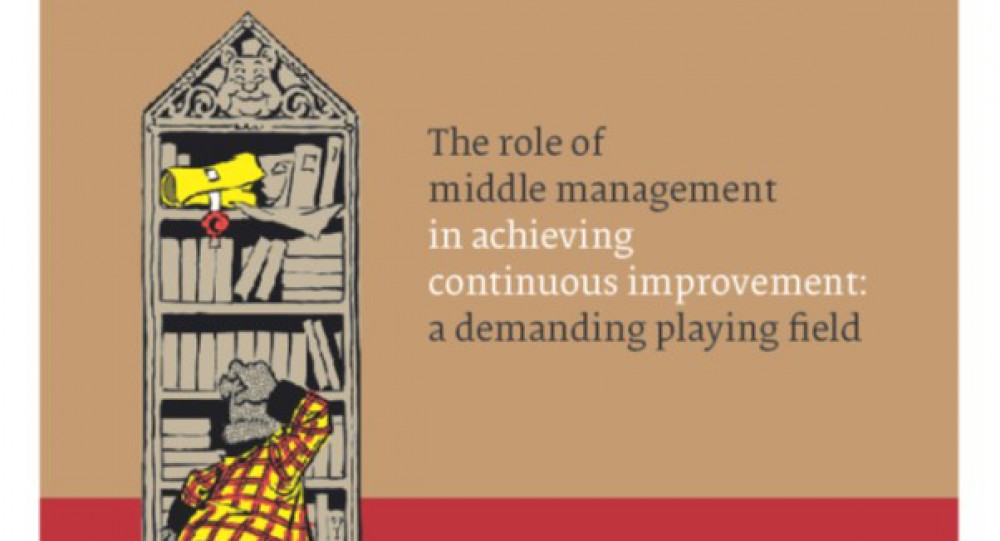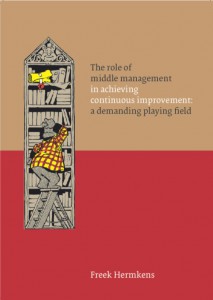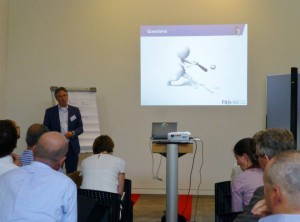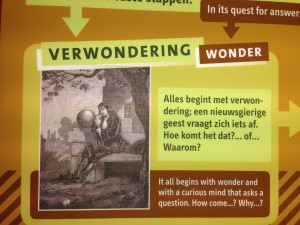Category Archives: Freek Hermkens
AN EXPLORATORY STUDY OF MIDDLE MANAGER’S ROLES IN CONTINUOUS IMPROVEMENT
Freek Hermkens, Sharon Dolmans, A. Georges L. Romme
Abstract
Floyd and Wooldridge have developed a widely used model regarding the middle managers’ contribution to strategic change, in which four strategic roles for middle managers are considered: championing, synthesizing, facilitating and implementing. Although there is an extensive body of knowledge about the roles and influence of middle managers in implementing strategy, insight in which roles are activated in continuous improvement (CI) initiatives is underdeveloped and highly dispersed. Therefore, in this study we seek to understand which middle management roles (i.e. championing, synthesizing, facilitating, implementing) contribute to accomplishing CI. To explore which of these roles are activated when middle managers are confronted with a CI initiative, we developed a scenario experiment. Our findings indicate that the implementing and synthesizing roles appear to be of key importance in the context of CI initiatives, while the facilitating and championing roles appear to be less relevant.
- Full Text: PDF
- DOI:10.5539/ibr.v13n5p9
A Vignette Study of Middle Managers’ Responses to Continuous Improvement Initiatives by Top Management
A Vignette Study of Middle Managers’ Responses to Continuous Improvement Initiatives by Top Management
Freek Hermkens, Sharon Dolmans, A. Georges L. Romme
Abstract
To better understand why continuous improvement (CI) initiatives often fail and do not result in sustained changes, this paper investigates how management’s conceptualization of a continuous improvement program affects its implementation via middle managers. The study serves to identify the differences in outcomes of CI initiatives arising from implementing CI as an integral management versus an efficiency-improvement approach. This research draws on a vignette study (i.e. scenario experiment) with 107 middle managers working at one of the largest financial institutions in the Netherlands. The findings arising from this study suggest that CI is more likely to be adopted into the organizational culture, enhance the customer orientation among employees and improve the work atmosphere, when it is implemented as an integral management approach rather than as an efficiency-oriented program.
Full Text: PDF
The Role of Middle Managers in Becoming Lean: A Systematic Review and Synthesis of the Literature
The Role of Middle Managers in Becoming Lean: A Systematic Review and Synthesis of the Literature
Freek Hermkens1*, Sharon Dolmans1 and Georges Romme1
1Eindhoven University of Technology, P.O.Box 513, 5600 MB Eindhoven, Netherlands.
Aims: Many organizations adopt the Lean management approach to create a culture of continuous improvement (CI), but often fail to accomplish such a change. Previous studies have explained this high failure rate in terms of poor leadership and management, including the role of middle managers. However, the body of knowledge about the role and influence of middle management in Lean CI is underdeveloped and highly dispersed. Some earlier work suggests that middle managers can both enable and hinder CI initiatives, but a systematic overview is missing. This paper provides a systematic review of the literature to develop a mechanism-based framework that explains the success and failure of CI initiatives in which middle managers are key agents. This study therefore aims to develop an evidence-based framework of key aspects of middle management roles in CI practices drawing on Lean.
Methodology: We conducted a mechanism-based systematic review of the literature. In total, 203 publications were selected and then reviewed in detail. This review focuses on how middle managers influence the implementation and success/failure of Lean CI initiatives.
Results: The review of the literature on CI/Lean and middle management results in two frameworks. Each of these frameworks assumes that top management consistently seeks to implement a particular (archetypical) philosophy of CI/Lean: the first framework assumes an integral management approach and the second one starts from the assumption that a cost-cutting strategy is adopted. Each of these two frameworks in itself reflects some of the key tensions and challenges arising from any CI/Lean change effort, especially for middle managers. In practice, the two conditions may overlap, which creates an additional level of complexity. Overall, our review provides an understanding of the (non)conditions in which continuous improvement initiatives are likely to succeed or fail, and as such also provides a starting point for future research as well as practical work in this area.
![]() Full Article – PDF Page 1-17
Full Article – PDF Page 1-17
DOI : 10.9734/JEMT/2017/38100
Webinar Middenmanagement een vloek of een zegen?
Hora Est Webinar: Leren promoveren. 19 september 2019
Master Yoda
MLC academy
Training Courses
We not only use our knowledge and experience in the field of Customer Excellence to make organisations more independent and more professional, we also feel that it is our responsibility to share this knowledge. We do this through our own MLC Academy.
In addition to offering standard training modules, the MLC Academy offers customised professionalisation training courses to groups in the field of Customer Excellence. These training courses can be carried out at various levels, both for entry-level employees and more experienced employees and managers.
The courses include such issues as: the Voice of the customer, a Customer driven (process) organisation, Results-oriented guidance, the design and modelling of processes and Continuous improvement.
If you have specific requirements, we will be able to provide you with a suitable offer.
Read more about our training programs:

Businessgames and Gamification
Traditional courses focus on knowledge transfer, which results in minimal behavioural change. We believe in experiencing something yourself and in influencing knowledge, attitudes and behaviours by applying game principles and game mechanics. Using Gamification, work becomes a temporary game. The target audience can be moved and get active through the use of an exciting game. In a very short time we can see a change of behaviour leading to a rapid improvement in the organisations’ performance. For Gamification, we work together with our partner, @Hand.

In our offer, we also have a business game about customer-oriented businesses. In this game simulation, the objective is to meet the business objectives and the customers’ needs simultaneously. Important principles such as customer satisfaction, customer value, customer loyalty, customer retention and creating customer ambassadors are the central theme of the game.
On-the-job coaching
We can assume that it is essential for organisations to bring the new knowledge that employees have gained into practice quickly and in the right way. It may be that additional support from an expert is appropriate. MLC helps organisations achieve goals through targeted on-the-job-coaching.
Knowledge meetings
In order to share our knowledge and to continuously challenge ourselves to further develop this knowledge we organise Round Table meetings and Master Classes.
Since 2010, MLC has been responsible for the master class in Business Process Improvement (BPI) at the master’s degree program for Personal Leadership in Innovation and Change (PLIC) at Zuyd Hogeschool (Zuyd University of Applied Sciences). In the BPI master class, managers and professionals learn to identify, design, realise and implement BPI in the organisation in a structured way. The master class also provides an additional benefit of creating awareness of the power of BPI in strategic change processes in which, for example, cost savings, process improvements and organisation innovations are the central theme. The master class uses a practical approach that is reinforced with theoretical concepts such as Lean Six Sigma, Continuous improvement, Results-oriented guidance and Voice of the customer.

Doctoral research
As a knowledge provider, we think it is important to continue to innovate. We therefore facilitate thesis research. Currently, our colleague, Freek Hermkens, is carrying out, as an external PhD candidate, research at the Technische Universiteit Eindhoven (TUE). Prof. Dr. Sjoerd Romme has been assigned as promoter with Dr. Sharon Dolmans and Prof. Dr. Ir. Arnout Brombacher as co-promoters.

The central theme of the research is: ‘How, and to what extent, does middle management contribute to the achievement of continuous improvement (within financial service providers)?’ You can find more information about this research at www.middle-management.eu.
On 12 and 13 September 2014, Freek presented his first research results during the 9th Colloquium on Organizational Change & Development (the Future of Change Management) in Essen, Germany.
Would you like to know more about what the MLC Academy can do for your organisation? Please feel free to contact Freek Hermkens .




